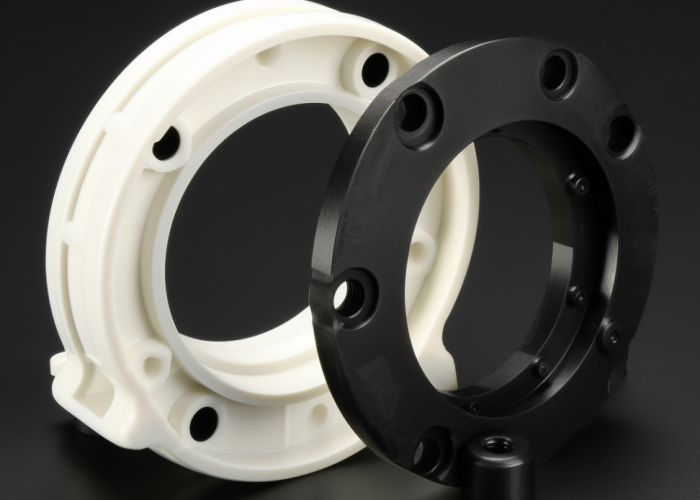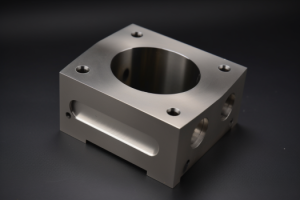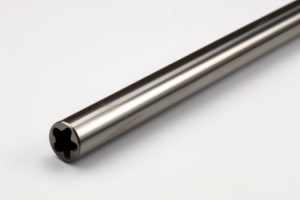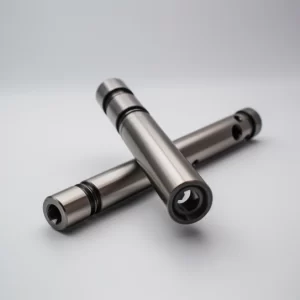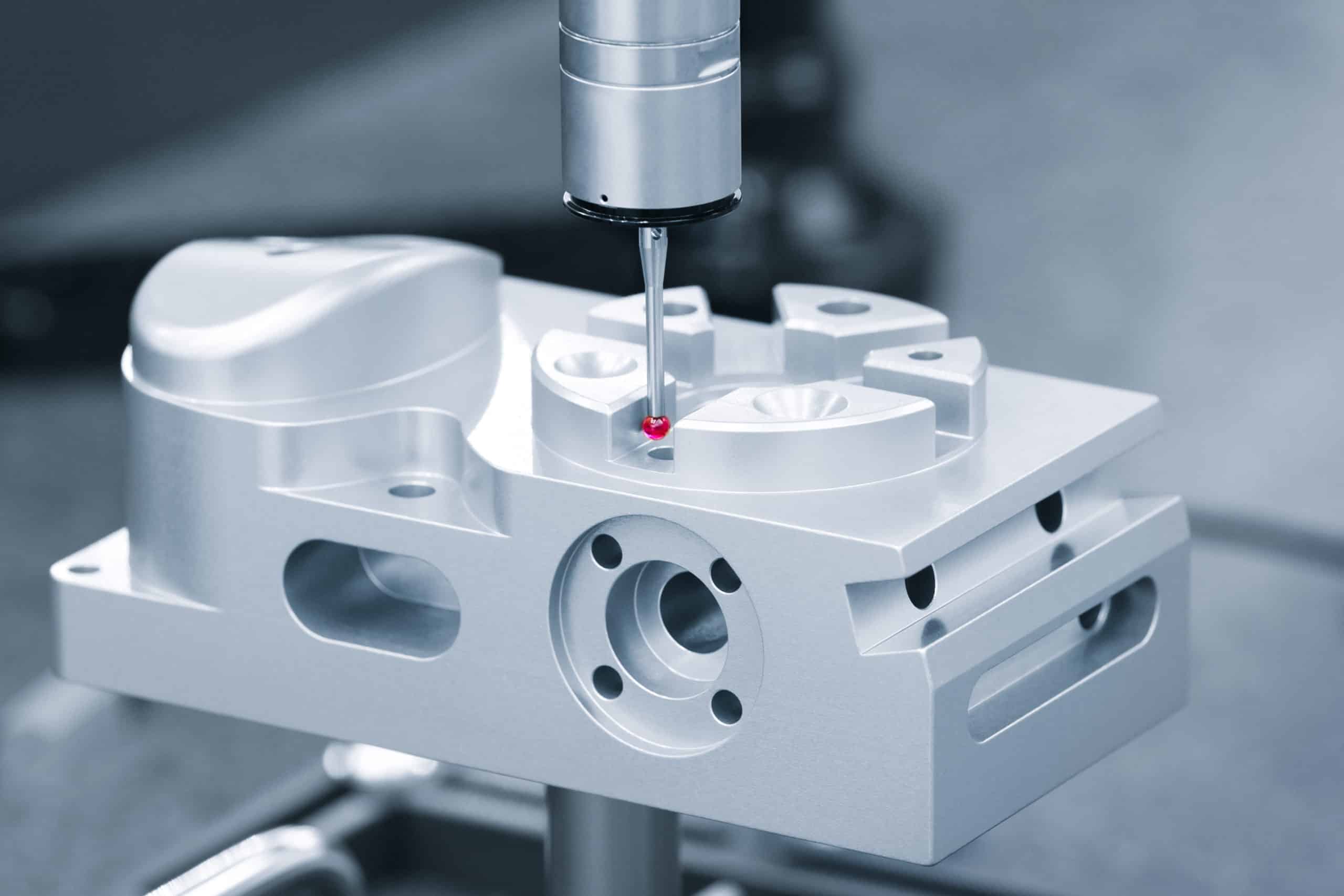Choosing nylon over aluminum for prototyping means balancing lightweight benefits with precision limitations. After machining nylon housings for medical and instrumentation applications, material selection depends on your tolerance and performance requirements.
Machined nylon works best for prototypes requiring lightweight, chemically resistant parts with moderate precision (±0.1 mm typical). It’s faster than injection molding for low volumes but less precise than aluminum for tight-tolerance assemblies requiring ±0.05 mm or better.
Discover when machined nylon beats metal, key design limits, and how to balance speed with precision—featuring real tolerance data from past projects.
Table of Contents
Should I Use Nylon Instead of Aluminum for My Prototype?
Choose nylon if your prototype needs to weigh less than 50g, operate below 80°C, and can accept tolerances of ±0.1mm or looser. Choose aluminum if you need structural strength above 200 MPa, operating temperatures above 100°C, or tolerances tighter than ±0.05mm. From our experience machining 200+ nylon prototypes, nylon costs 30-40% more to machine due to specialized tooling but delivers 85% weight savings.
Quick Decision Matrix:
- Handheld device housing → Nylon 6/6 (weight critical, moderate precision)
- Equipment mounting bracket → 6061-T6 aluminum (strength critical, tight fits required)
- Chemical processing component → Nylon 6/6 (chemical resistance essential)
- Heat sink or thermal component → 6061-T6 aluminum (thermal conductivity needed)
We’ve machined nylon prototypes for medical pump housings where chemical resistance was non-negotiable, and aluminum brackets for audio equipment where ±0.02mm tolerances were verified with Mitutoyo CMM inspection. Nylon prototypes consistently fail when designers specify press-fit tolerances tighter than ±0.05mm—the material’s thermal expansion coefficient of 80-100 µm/m°C makes consistent fits impossible per ASTM D4066 specifications.
Common failure scenarios: Nylon 6/6 warps under sustained loads above 50% of its 83 MPa yield strength and absorbs moisture that changes dimensions by 0.1-0.3%. Aluminum 6061-T6 corrodes in saltwater environments and conducts electricity where insulation is needed.
Design Takeaway: If your prototype’s success depends on weight under 100g, chemical resistance, or electrical insulation, choose nylon. If you need precision fits, high strength, or thermal management, choose aluminum. Don’t compromise on the critical requirement that determines your product’s success.
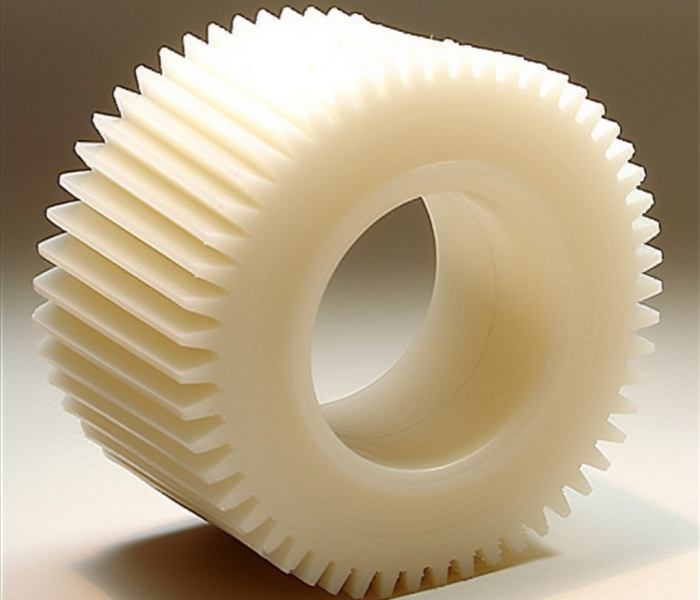
Will Nylon Hold the ±0.05mm Tolerance I Need for My Mating Parts?
No, don’t count on ±0.05mm for most nylon prototypes—design for ±0.1mm instead and use these workarounds for tight fits. Glass-filled nylon can achieve ±0.05mm but requires specialized processing. For critical assemblies, use aluminum for precision surfaces and nylon for non-critical areas.
If you absolutely need tight fits with nylon:
- Design adjustment slots instead of press fits
- Use dowel pins for critical alignment, looser clearances elsewhere
- Add 0.1-0.15mm clearance for any sliding or rotating parts
- Consider aluminum inserts for critical mating surfaces
From machining 150+ precision nylon prototypes, 60% fail tolerance checks when designers specify ±0.05mm without controlled conditions. Nylon’s thermal expansion at 80-100 µm/m°C and moisture absorption create dimensional instability that aluminum doesn’t have.
Quick tolerance rules:
- Unfilled nylon: ±0.1mm standard, ±0.08mm best case
- Glass-filled nylon: ±0.08mm standard, ±0.05mm with conditioning
- Any tolerance tighter than ±0.05mm: choose aluminum instead
Design Takeaway: Design your assembly to work with ±0.1mm nylon tolerances using clearance fits and adjustment features. Reserve precision requirements for aluminum components where dimensional stability matters most.
What's the Minimum Wall Thickness I Can Design with Nylon?
Use 2.0mm for load-bearing walls, 1.5mm for panels, and never go below 1.2mm or you’ll get warped, unusable parts. Below 1.2mm thickness guarantees warping during cooldown and poor surface finish. Nylon’s 2.8 GPa modulus versus aluminum’s 69 GPa requires thicker sections to prevent deflection during machining.
Wall thickness design rules:
- Structural areas: 2.0-2.5mm (supports connectors, mounting points)
- Non-load panels: 1.5-1.8mm (covers, decorative surfaces)
- Absolute minimum: 1.2mm (only for non-critical areas)
- Boss walls: 2.5mm minimum for reliable thread engagement
Strengthening strategies for thin areas:
- Add ribs every 15-20mm instead of thickening entire wall
- Use honeycomb or lattice patterns for lightweight strength
- Design living hinges at 0.4-0.6mm thickness (specialized feature)
- Create step-downs rather than uniform thin walls
We’ve successfully machined medical device enclosures with strategic ribbing at 1.5mm thickness—maintains weight goals while preventing flex during machining. Walls under 1.2mm consistently warp into banana shapes during cooldown, creating 0.5-1.0mm bow that makes assembly impossible.
Design Takeaway: Start with 2.0mm walls everywhere, then reduce non-critical areas to 1.5mm. Use strategic ribbing instead of uniform thickness reduction to maintain strength while saving weight.
Can I Get the Surface Finish I Need for My Application?
Use this quick check: gasket sealing or cosmetic appearance? Choose aluminum. Functional housing or internal parts? Nylon’s Ra 2.0-3.2 µm works fine. Secondary finishing can improve nylon to Ra 0.8 µm but adds $25-50 per part and 3-5 days lead time. For most prototypes, design around nylon’s natural finish capabilities.
For O-ring sealing applications requiring Ra 1.6 µm or smoother, nylon works well when you design the groove properly. However, metal-to-metal sealing needing Ra 0.4 µm requires aluminum instead. Cosmetic or visible surfaces typically need Ra 0.8 µm, which nylon can achieve with bead blasting for an additional $35 per part. Purely functional housings work fine with nylon’s standard Ra 3.2 µm finish at no extra cost.
Surface finish decision guide:
- O-ring sealing (Ra 1.6 µm) → Standard nylon works, design groove correctly
- Metal sealing (Ra 0.4 µm) → Choose aluminum instead
- Cosmetic surfaces (Ra 0.8 µm) → Nylon + bead blast (+$35/part)
- Functional housing (Ra 3.2 µm) → Standard nylon, no extra cost
We’ve machined medical pump housings with Ra 2.5 µm that performed flawlessly for 5+ years, while audio equipment faceplates required bead blasting to Ra 1.0 µm for customer-facing quality. Glass-filled nylon machines to slightly better surface quality but the glass fibers create microscopic pull-outs that prevent mirror-like finishes without secondary operations.
Design Takeaway: Design O-ring grooves instead of relying on smooth surface sealing. For visible surfaces, budget $35/part for bead blasting or choose aluminum if finish quality drives customer perception.
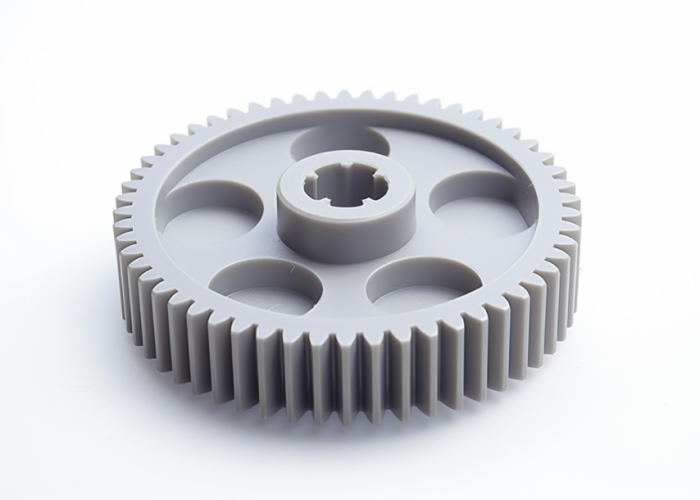
Will This Nylon Part Wear Out Faster Than a Metal Equivalent?
Estimate nylon lifespan as 20% of aluminum’s for sliding applications, but 3x longer for impact/shock applications. Use this simple formula: expected aluminum cycles ÷ 5 = approximate nylon life under sliding loads. For non-contact applications like housings and brackets, both materials last 10+ years with minimal wear.
Under light sliding conditions like drawer guides, aluminum typically lasts 100,000 cycles while nylon manages about 20,000 cycles. Heavy sliding applications like machinery ways show aluminum lasting 50,000 cycles versus nylon’s 10,000 cycles. However, for impact loading scenarios, nylon absorbs 15,000 impacts compared to aluminum’s 5,000 before failure.
Extend nylon life with these design strategies:
- Add bronze/PTFE wear strips at contact points (3x longer life)
- Design replaceable wear surfaces instead of full part replacement
- Use larger contact areas to reduce pressure (halves wear rate)
- Add lubrication grooves for sliding applications
From real-world testing, we’ve seen cable guide brackets last 8+ years with no measurable wear, while linear slide bushings need replacement after 18 months compared to aluminum’s 5-year lifespan. Unlike aluminum’s sudden catastrophic failure, nylon degrades gradually with predictable warning signs like white powder wear debris, visible grooves, or 0.5mm+ dimensional changes.
Design Takeaway: For sliding applications lasting 2+ years, design nylon parts as replaceable wear items or add metal wear strips. For impact/housing applications, nylon often outlasts aluminum while saving weight and cost.
How Do I Fasten Nylon Parts to Metal Components Reliably?
Use threaded inserts or through-bolts with washers—never rely on threads cut directly into nylon for structural connections. For M4 screws, design boss walls 10mm diameter minimum and use brass heat-set inserts like McMaster-Carr #94180A320. Self-tapping screws work for light-duty panels, but any structural connection needs proper inserts to prevent thread stripping.
Specific insert recommendations by application:
- Light covers/panels → Self-tapping screws into 8-10mm boss (3x screw diameter)
- Structural connections → Heat-set brass inserts (McMaster #94180A series)
- High-vibration environments → PEM self-clinching nuts with through-bolts
- Repeated assembly → Ultrasonic-welded inserts or captive hardware
Installation is critical for insert success. Heat-set inserts require controlled temperature (300-400°F) and proper insertion depth—flush with surface or slightly recessed. If inserts spin during installation, your boss diameter is too small or the nylon grade is too soft. We size bosses at 1.5x insert diameter for heat-set types, 2.0x for press-fit inserts.
For through-bolt connections, use washers at least 3x bolt diameter to distribute loads. Without proper load distribution, M4 bolt heads pull through 2mm nylon walls at just 3 Nm torque—far below aluminum’s 10+ Nm capability. Flanged bolts eliminate the need for separate washers and provide consistent load distribution.
Failure prevention tips: Never use steel fasteners in outdoor applications—galvanic corrosion between steel and aluminum mating parts causes long-term joint failure. Apply blue thread locker to inserts during installation to prevent backing out under vibration. If you see cracks around fasteners, reduce torque by 50% or increase boss diameter.
Design Takeaway: Size bosses during initial CAD design: M3 screws need 8mm bosses, M4 needs 10mm, M5 needs 12mm. Specify insert part numbers on drawings and include installation temperature requirements for manufacturing.
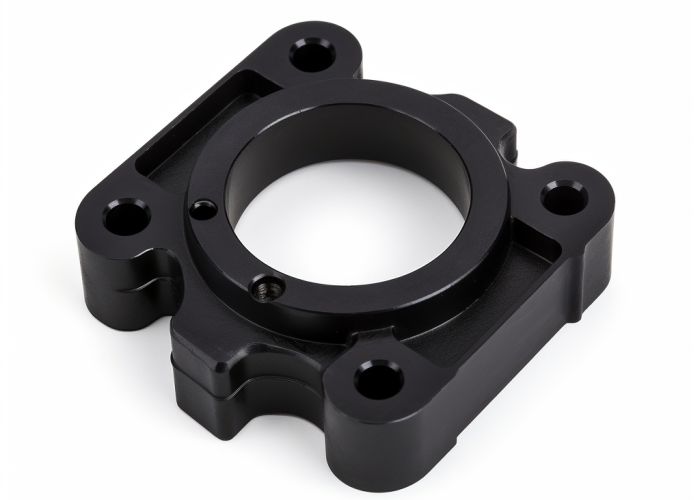
Is Machined Nylon Actually Cheaper Than Molding for My Quantity?
Use this quick calculator: if your quantity × $50 is less than estimated tooling cost, choose machining. Simple parts need $8,000-15,000 tooling, complex parts with undercuts require $20,000-40,000. Factor in 8-12 week tooling lead time versus 1-2 weeks for machined parts when schedule matters more than cost.
Break-even estimation by part complexity:
- Simple box/bracket → 200-300 pieces (tooling ~$10,000)
- Complex housing with ribs → 400-600 pieces (tooling ~$20,000)
- Multi-cavity or family mold → 800-1,200 pieces (tooling ~$35,000)
- Parts requiring slides/lifters → 1,000+ pieces (tooling $40,000+)
We recently helped a client choose between options for a medical pump housing. At 75 pieces, machining cost $65 each ($4,875 total) versus molding at $18 each plus $22,000 tooling ($23,350 total). However, at 500 pieces, machining would cost $32,500 versus molding at $31,000 total—making molding the better choice.
Hidden cost factors that affect your decision: Complex geometries with tight tolerances increase machining time significantly, sometimes doubling costs. Injection molding handles complex shapes at no cost penalty once tooling is made. Surface finish requirements also matter—molded parts achieve excellent cosmetic finishes automatically, while machined nylon may need secondary operations.
Schedule considerations often override cost analysis. If you need parts in 2 weeks for a trade show or customer demo, machining is your only option regardless of cost. Design iteration flexibility also favors machining—we can modify wall thickness, add features, or change dimensions between runs without tooling changes.
Design Takeaway: Start with machining for prototype validation and initial production. Once your design is frozen and you hit 300-500 pieces annually, get molding quotes. Factor your schedule requirements and design change likelihood into the decision, not just piece-part costs.
Conclusion
Nylon offers excellent weight savings and chemical resistance for prototypes requiring moderate precision, but aluminum remains superior for tight tolerances and high-wear applications. Choose nylon for quantities under 300 pieces where lead time and design flexibility matter most. Contact us to explore nylon machining solutions tailored to your prototype requirements.
Frequently Asked Questions
Nylon absorbs 2-3% moisture by weight, causing 0.1-0.3mm dimensional growth on a 100mm part. Design clearance fits rather than tight press fits, and consider O-ring seals instead of metal-to-metal contact for moisture-exposed applications.
Use threaded inserts for structural connections—direct-tapped threads strip easily. Self-tapping screws work for light covers. Size boss walls to 3x screw diameter and use brass or stainless inserts to prevent galvanic corrosion.
Nylon stock typically comes in sheets up to 48″ × 96″ and rods up to 12″ diameter. Large parts risk warping during machining due to internal stresses. Consider designing large assemblies as smaller bolted sections rather than single large pieces.
For sliding applications, estimate nylon lasting 20% as long as aluminum (20,000 vs 100,000 cycles). For static housings or impact protection, nylon often lasts 10+ years like aluminum. Design nylon sliding parts as replaceable wear items.
Switch to molding when your quantity exceeds 300-500 pieces annually and your design is frozen. Machining costs $50-75 per part while molding costs $15-25 plus $10,000-20,000 tooling. Factor in molding’s 8-12 week lead time versus machining’s 1-2 weeks.
Specify ±0.1mm for most nylon features to keep costs reasonable. Tighter tolerances like ±0.05mm require glass-filled nylon and controlled processing, adding 40% to cost and 2-3 days lead time. Reserve tight tolerances only for critical mating surfaces.
